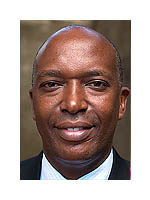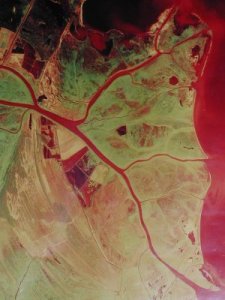Published: 2008
On Friday, May 2, the Third Division of the Civil and Commercial Court of Appeals of Asunción overturned a First Instance decision and ruled in favor of a petition filed by the Ombudsman – with the legal assistance of IDEA’s lawyers- representing citizen Félix Picco Portillo, who had previously requested to access public information at the Municipality of Lambaré, without success.
The Court of Appeals, through the opinion of Judge María Mercedes Buongermini Palumbo –to which Judges Neri Villalba Fernández and Arnaldo Martínez Prieto adhered-, held that “the appearance of the right of access to information in the catalog of fundamentals rights is relatively recent”. That, “this right founds its justification on the more generic right –essential to deliberative and participative democracies- of having the freedom to form our own opinion and participate responsibly in public issues; it contributes to the formation of our own opinion as well as public opinion, which is closely linked to political pluralism. It constitutes, thus, in an essential tool for the issues that matter for citizen and collective life, and it is a condition for participation in the management of what is “public”, that is, the system of relations and interrelations that constitute the basic scheme that supports the democratic coexistence”.
The Court of Appeals also held that “any denial to provide information related to a public organization’s structure – even its personnel- or the allocation of public funds, not covered by an exception clause, (…) it is an unjustified measure that infringes the right of access to information established in our Constitution”.
Finally, explaining that it was obiter dictum – that is, an argument that is unnecessary to the decision in the case and therefore not precedential-, the Court of Appeals stated that “the circumstance that the plaintiff hadn’t exposed the object or the finality of his request, that is, the justification of his interest on the information he asked for, it is not an obstacle for the delivery of that information. Such an argument is not proper and it is strange to the exercise of the right of access to information, since this right is justified by itself according to the generic objectives of participation and control in the democratic life, and not in relation to a specific motivation. Demanding a citizen to provide an explanation would be a transgression to this right, imposing requisites not established by the legal norm for its compliance; on the contrary, it would have a secondary effect: it would open the door for a public entity to evaluate the adequacy of the request’s reason, because no other objective would be deducible or attributable to that requisite”.
The Court of Appeals also imposed the court costs to the Municipality of Lambaré and, on Friday, May 16, Mr. Picco Portillo finally got access to the information he had requested.
Mr. Picco Portillo initiated the amparo action* that ended in this Sentence with the support of the Ombudsman’s Access to Public Information Center – APIC. The APIC was created by Resolution 160/07, in response to a request presented by of the Environmental Law and Economics Institute – IDEA, given its Spanish acronym- within the framework of the “Center and Window of Access to Public Information” Project, supported by the Information and Resources Center for Development – CIRD, given its Spanish acronym- and the financial assistance of the United States Agency for International Development – USAID.
The Ombudsman’s Access to Public Information Center was created to:
Canalize citizen inquiries of access to information that public agencies generate or obtain with public funds. Receive denounces and complains of denial of access to public information. Bring to Justice cases of unjustifiable denial of access to public information.
Attached you will find the Sentence of the Court of Appeals in Spanish. For further information, please contact Ezequiel F. Santagada (ezequiel.santagada@idea.org.py), Coordinator of the “Center and Window of Access to Public Information” Project. Environmental Law and Economics Institute – IDEA, Asunción, Paraguay. Tel/Fax (595-21) 614-619/20.
- Its parallel in the common law system could be the writ of injunction and the mandamus combined.



